Locking Plasterers: Whenever you are carrying out home improvements or refurbishments on your house in Locking it is more or less certain that you will either need to get fresh plaster applied to a new wall surface or some old plaster walls repaired. Plastering is a skilled occupation and whilst you might be quite handy at DIY, it's not the kind of job that you ought to attempt yourself, except if you are extremely confident in your ability. This particularly applies if there are ceilings to be skimmed, because you will almost certainly get yourself and your home in a bit of a mess if you choose to endeavour to do it. You would be sensible to bring in a specialist plasterer to tackle this work, and although you should have no hassle finding a plasterer in Locking, getting one who's got the time free for your job could be more challenging. Plasterers, as with a lot of craftsmen, are generally fully booked up, thus if at all possible try and schedule the job several weeks in advance.
There aren't all that many home remodeling projects that don't demand at least a bit of plastering. It may be re-plastering a ceiling, skimming some dry lining, fitting coving or mouldings before decorating or screeding. Having said that, any one of an array of plastering related jobs might be needed.
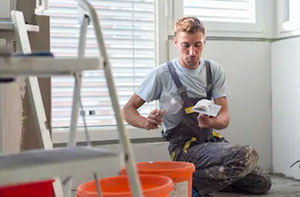
Any decent Locking plasterers will have to hand portfolio (or at least some photos) of proficiently accomplished assignments, ask to see it so that you can be sure that they really know their stuff. You do not want to get landed with a bunch of "cowboys" doing your plastering. Though it might not be immediately noticeable, shoddy plastering can lead to big problems down the line.
The defects will soon manifest on the freshly plastered wall once a coat of paint has been applied to it. When viewed in bright sunlight, even more imperfections will become apparent on any defective surfaces. To avoid problems like this, choose only from experienced plasterers in Locking.
Plastering needs to be smooth and flat, since it is merely a base upon which other products and materials are applied. Irregular surfaces are tricky to conceal, although trivial imperfections and cracking can easily be filled and sanded later without any problems. Problems with the installation of kitchen units, the tiling of wall surfaces, fitting architraves and the wallpapering and painting of ceilings and walls, can result from an imperfectly plastered surface.

You can always tell professional Locking plasterers because they consistently get a perfect, polished, straight from the trowel. Sanding (particularly with machine tools) should never be necessary on freshly plastered ceilings and walls, a quick rub down with very fine glasspaper is all that ought to be needed. If forceful sanding is necessary, you can assume that your plastering hasn't been done properly. If you hear the loud buzzing of electric sanding machines, you need to carry out a thorough quality assessment.
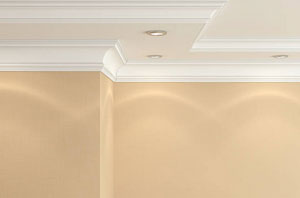
These days, a typical reason to call in a plasterer is to cover an old artex ceiling. A large number of homes in Locking had ceilings that were coated with artex during the nineteen seventies and eighties, when it was at its height of popularity. So as to get your ceilings looking sleek and modern once more, your Locking plasterer will gladly cover them up with a smooth new finish. If however, you would like to bring a bit of that old style back into your home, most plasterers will be just as glad to coat your ceiling with artex as they are to plaster over it.
DIY Plastering Locking: Although when you have plastering work that needs to be done in your home or business premises in Locking, it's better to call in a professional plasterer to do the job, it's still quite possible to have a bash on your own, if you have self-belief and are accomplished at DIY. As a novice plasterer it's a great idea to begin your plastering journey by maybe practicing on a spare bedroom or an out of sight area, in particular one that already has a poorly plastered surface and cannot be made worse by your amateurish efforts. This is likely to be less stressful for you, and enable you to spend a little while testing out your newly acquired skills. To a certain degree, it's quite possible for you to re-plaster a wall surface as many times as you like, consequently if you make a bodge up of it at the first attempt, you can always go back and re-do it as your abilities improve.
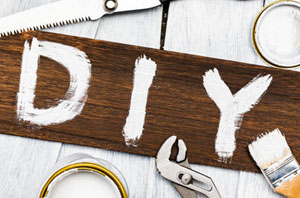
If you are on the lookout for a few tips to set you on the right path, you could always watch some You Tube tutorials. Or, if you're itching to learn plastering you could even look at taking a course at a nearby college or school. Like most "hands on" activities, the more you practice the more skillful you become at plastering. Keeping to the tried and true ways is usually better when you're plastering, although through trial and error you may even come up with your own solutions for getting a flawless plastered finish. Self-confidence is the most crucial thing with plastering, and the more frequently you do it, the more confident you are likely to become. You should be able to start plastering the other walls of your property as soon as you've perfected the art to a level you are happy with. You've still got the option of calling in a professional Locking plasterer to put things right if you mess it up.
Plaster
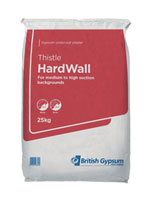
What is Plaster? - Used for decorating and protecting walls and ceilings in buildings, plaster is a material which has been in use since ancient Egyptian times. What most of us call "plaster" in the UK is normally understood to be the material which is used for coating the internal rooms of houses and structures, whilst that which is used on outside walls is referred to as "render" or "rendering". The most commonplace forms of plaster generally contain either gypsum, cement, or lime, though all pretty much work in the same way. Plaster is is produced in powdered form and when needed, is simply blended with water to create a stiff, easily workable paste just prior to application. A chemical reaction is triggered when the water and the plaster powder are combined together, and hardening occurs because of the heat generated through crystallization. Professional Locking plasterers will supply their own plaster products, however if you need to buy this yourself go to British Gypsum, Screwfix, Travis and Perkins, Wickes or B&Q. (Tags: Plaster Locking, Plastering Locking, Render Locking)
Rendering
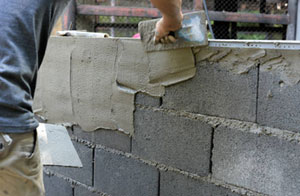
The process of applying a mixture of cement, lime, sand and water to either interior or exterior walls in order to achieve a textured or smooth surface, is called rendering, which is a very similar skill to plastering. A favoured technique throughout Europe, rendering is particularly common in the Mediterranean region, notably in Italy, Greece and Spain. A rendered surface is mostly employed for aesthetic purposes but is additionally waterproof and has got some fire resisting properties. There are 2 ways that a rendered surface can be coloured, either you can apply paint as soon as it is properly dry, or the colouring can be added to the render mix itself, producing a finish which is much longer lasting and more resilient. (Tags: Rendering Locking, Renderers Locking)
Pebble Dash
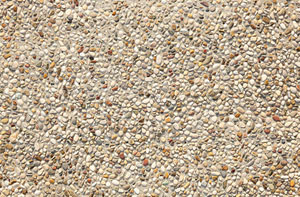
Pebble Dashing Locking: Pebble dashing (sometimes called roughcast) has been around for many years and used to decorate and protect the outsides of homes. Although it is not everybody's cup of tea. Plasterers will sometimes do this kind of work for you, though there are pebble dashing experts out there.
Pebbledashing (or pebble dashing) is a type of exterior wall coating usually consisting of two layers of a base made from sand and lime onto which small pebbles, gravel or shells are firmly pressed to create a robust, attractive and maintenance free finish on both renovated and new homes. (Tags: Pebble Dash Removal Locking, Pebble Dashing Locking, Pebble Dash Locking, Pebble Dashers Locking)
Plastering Tools
Plasterers use lots of tools that do not typically appear in the tool boxes of other craftsmen or DIYers, which is the explanation why most plastering work in Locking is generally carried out by specialist plasterers. The following are just a handful of the tools that a professional plasterer will use:
- Plasterer's Hawk
- Corner Trowel
- Drywall Rasp
- Plasterer's Trowel
- Plastering Rule
- Door & Board Lifter
- Edging Trowel
- Finishing Trowel
- Jointing & Taping Knives
- Plastering Float
- Plaster Mixing Paddle
- Plaster Buckets & Pan
Plasterboarding (Dry Lining) Locking

Dry Lining Locking: Dry lining is sometimes needed in home renovation projects, and there are a few plasterers in Locking who are happy to offer this particular service. By mounting plasterboard onto a brickwork or masonry surface, a wood studding or Gypframe metal framing, a stable wall surface is created which does not need to be plastered. While it is feasible to decorate or paint the plasterboard surface after a bit of filling, usually most like to get the plasterboard skimmed with a fine plaster coat afterwards to give it an extra smooth finish. As for fittings, when attaching plasterboard to timber studding or joists, nails or drywall screws are used, when attaching to a metal framework Jack-Point self drilling, self tapping screws are used and when attaching to a brickwork or masonry wall "dot and dab" bonding is used.
Plasterer Locking
A plasterer in Locking is a tradesman who works solely with plaster, carefully spreading a smooth, even layer of this material over an otherwise coarse and irregular surface. Plastering as a trade has been in existence for hundreds of years, whilst the technique in general has been employed in construction for millennia. These days, mostly applied to the internal walls of commercial and domestic premises, plaster is used to generate an even, smooth surface which is ready to accept the final finishing material. Plaster can also be used to make ornate mouldings which can be used to enhance walls and ceilings. The plastering process also plays an important role in a lot of home building projects in Locking, and may be used in the finishing of garages, extensions, loft conversions, porches and more.
Plastering Tasks Locking

Locking plastering specialists can normally help with internal rendering and screeding, screeding before tiling in Locking, dragged plaster, Marmorino plastering, rapid setting screeds, ceiling overboarding Locking, ceramic tiling, coloured K Rend, plastering over artex, lay in grid suspended ceilings, stucco plaster, polished plastering, wall crack repairs in Locking, stud partitions, monocouche rendering, concrete plastering, chamois plaster, false ceilings Locking, drywall skimming and plastering Locking, lath and plaster ceilings, float and set plastering, floor levelling and screeding, skimming over artex in Locking, dot and dab walling, overskimming plaster ceilings, Venetian polish plastering, lime plastering, dry lining and plastering ceilings, skirting board installation in Locking, patch plastering and other plastering work in Locking, Somerset.
Locking Plastering Services
- Locking Polished Plastering
- Locking Soundproofing
- Locking Plaster Patching
- Locking Plasterers
- Locking Commercial Plastering
- Locking Float and Set
- Locking Artexing
- Locking Plastering
- Locking Plasterboarding
- Locking Domestic Plastering
- Locking Cornice Installation
- Locking Coving Installation
- Locking Ceiling Replacements
- Locking Plaster Repairs
Other Useful Trades in Locking Somerset

Naturally, when you happen to be doing home improvements and repairs in Locking, Somerset, you are likely to need all kinds of different tradespeople and aside from plasterers in Locking, Somerset, you may additionally need end of tenancy cleaners in Locking, electric socket installation in Locking, pebble dashing in Locking, screeders in Locking, external wall insulation in Locking, rubbish removal in Locking, decorators in Locking, artexers in Locking, wall tiling in Locking, plasterboarders in Locking, plaster mouldings in Locking, builders in Locking, dry lining in Locking, carpenters & joiners in Locking, bricklayers in Locking, cornice fitters in Locking, rendering specialists in Locking or polished plaster in Locking.
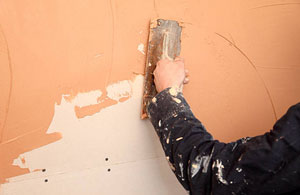 Plasterers Locking
Plasterers Locking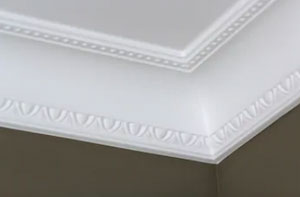 Plastering Near Me
Plastering Near Me Plasterer Locking
Plasterer LockingMore Somerset plasterers: Street Plasterers, Bridgwater Plasterers, Nailsea Plasterers, Burnham-on-Sea Plasterers, Clevedon Plasterers, Portishead Plasterers, Shepton Mallet Plasterers, Minehead Plasterers, Chard Plasterers, Weston-Super-Mare Plasterers, Radstock Plasterers, Yeovil Plasterers, Wells Plasterers, Keynsham Plasterers, Frome Plasterers, Glastonbury Plasterers, Wellington Plasterers, Bath Plasterers, Midsomer Norton Plasterers and Taunton Plasterers.
Plasterer Locking - Plasterboarding Locking - Screeding Locking - Rendering Locking - Plasterers Locking - Polished Plaster Locking - Plaster Skimming Locking - Plastering Locking - Cheap Plasterer Locking





